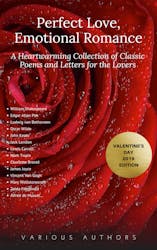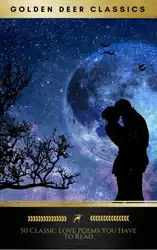John Clare (1793-1864) was born at a time of great social upheaval, just months after the beheading of Louis XVI and the outbreak of war with France which was to last till the defeat of Napoleon at Waterloo in 1815. He also lived through the upheavals of the land enclosure movement and agricultural revolution which changed the face of the countryside and the way of life in rural England. His father was a farm worker who managed to pay for his son’s schooling, though this was cut short as conditions worsened, but at least Clare had by then learnt to read and write so he could continue his own education, reading whatever books he could lay his hands on. At the age of sixteen he witnessed the social dislocation caused by the local enclosure Act and observed how the landscape was gradually transformed. Drawing on Clare’s writing, this extensively researched study gives the modern reader an appreciation of the divisive effects of these policies. Structured chronologically, this exploration of John Clare’s life highlights the socio-economic and environmental aspects of his observations and includes his reports on an insidious revolution taking place in the English countryside. Parliament, dominated by landowners, authorised the enclosure of large tracts of common land by private acts without considering the effect on those who had enjoyed rights of use and pasturage for centuries. Land enclosures, and the improved agricultural techniques which this permitted, was important in increasing food production at a time when the population of England was growing rapidly. While additional work was initially provided for agricultural labourers in the fencing and walling needed, this was temporary. The introduction of new, labour-saving machinery further reduced the opportunities for work. Insufficient attention, the author argues, has been given to the consequences. Those driven out of their homes in the country were left with no option but to migrate to the towns and sell their labour to whoever would pay for it. In effect, land enclosure created a market in land; landlessness created a market in labour. These are the foundations of our modern market economy. The author asserts that the harshness of the early years of the industrial revolution were the product of land enclosure which the welfare state has to some extent mitigated, although at the cost of creating a dependency culture in contrast to the sturdy independence of Clare’s parents’ generation of farm workers.

Perfect Love, Emotional Romance: A Heartwarming Collection of 100 Classic Poems and Letters for the Lovers (Valentine's Day 2019 Edition)
William Shakespeare, Christina Rossetti, Walt Whitman, Golden Deer Classics, Lord Byron, John Donne, Kahlil Gibran, Robert Browning, Emily Dickinson, Percy Bysshe Shelley, Alfred Tennyson, Edgar Allan Poe, John Keats, Andrew Marvell, Rabindranath Tagore, Elizabeth B. Browning, Ella W. Wilcox, Sara Teasdale, George Etherege, Michael Drayton, Samuel T. Coleridge, Robert Burns, Sir Thomas Wyatt, Patience Worth, Christopher John Brennan, Oscar Wilde, C, Unknown, William Morris, John Clare, Thomas Moore, Robert Louis Stevenson, Anne Bradstreet, John B. O'Reilly, Ralph Waldo Emerson, Leigh Hunt, Dante G. Rossetti, Sir Walter Scott, John Wilmot, Robert Herrick, Ludwig van Bethoveen, Emma Darwin, Charles Darwin, Virginia Woolf, Vita Sackville-West, Honoré de Balzac, Napoleon Bonaparte, Voltaire, Henry VIII, Leo Tolstoy, Gustave Flaubert, Nathaniel Hawthorne, Jack London, Johann von Goethe, James Joyce, Abigail Adams, Sullivan Ballou, Harriet Beecher Stowe, Pietro Bembo, Charlotte Brontë, Lewis Carroll, Catherine of Aragon, Mark Twain, John Constable, Oliver Cromwell, Ninon De L'Enclos, Alfred de Musset, Zelda Fitzgerald, Mary Wollstonecraft, Heloise, Count Gabriel Honore de Mirbeau, Lyman Hodge, King Henry IV, Franz Liszt, Katherine Mansfield, Wolfgang Amadeus Mozart, Thomas Otway, Ovid, Robert Schumann, Vincent Van Gogh, Tsarina Alexandra, Laura Lyttleton
book
Poems
John Clare
book
50 Classic Love Poems You Have To Read (Golden Deer Classics)
Lord Byron, Golden Deer Classics, Christina Rossetti, Walt Whitman, William Shakespeare, John Donne, Khalil Gibran, Robert Browning, Emily Dickinson, Percy Bysshe Shelley, Alfred Tenysson, Edgar Allan Poe, John Keats, Andrew Marvell, Rabindranath Tagore, Elizabeth Barret, Ella Wheeler Wilcox, Sara Teasdale, George Etherege, Michael Drayton, Samuel Taylor Coleridge, Robert Burns, Sir Thomas Wyatt, Patience Worth, Christopher Brennan, Oscar Wilde, Christopher Marlowe, William Morris, John Clare, Thomas Moore, Robert Louis Stevenson, Anne Bradstreet, John Boyle O'Reilly, Ralph Waldo Emerson, Leigh Hunt, Dante Gabriel Rossetti, Sir Walter Scott, John Wilmot, Robert Herrick
book
Delphi Complete Works of John Clare (Illustrated)
John Clare
book
John Clare Complete Works – World’s Best Collection
John Clare, Frederick Martin
book
Poems
John Clare
book
John Clare By Himself
John Clare
book
